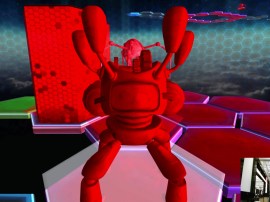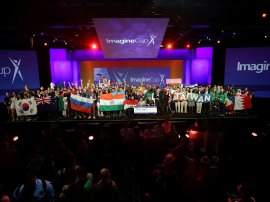Microsoft Imagine Cup finals 2015: Stuff’s best picks
Our favourite apps, projects and innovations from some of the world's brightest young minds

Walking around the huge bustling Microsoft campus in Seattle at this time of year is a little overwhelming.
Not only is it Windows 10 launch week, but it’s also Microsoft’s annual //oneweek, which sees thousands of Microsoft employees celebrate what makes them great, from the 3000 employee-strong hackathon to tonnes of different seminars and events to get creative juices flowing.
It’s also the week of the 2015 Microsoft Imagine Cup finals, which sees young finalists from all around the world come together with apps, games and innovative ideas, pitting themselves against each other for cash prizes and the ultimate overall prize of a one-to-one mentoring session with Microsoft CEO Satya Nadella.
We’ve scoured the Imagine Cup event from the front lines here in Seattle, and have hand picked seven of our favourite ideas. And here they are:
Ovivo (Russia)
Ovivo won first place in the games category, netting a whopping US$50,000 cheque in the process.
It’s a visually stunning black and white platformer which sees you navigate a simple ball through weird and wacky 2D environments.
The world itself is split into black and white spaces, with the black areas reversing gravity. You can flitter in and out of the black and white sections of a map instantly, letting you solve puzzles and progress through the story.
ScreenAIR (Japan)
The Japanese team has brought an air-sensing screen to the table, and having tried it ourselves, we can easily see it infiltrating arcades with a whole new different way to interact with games.
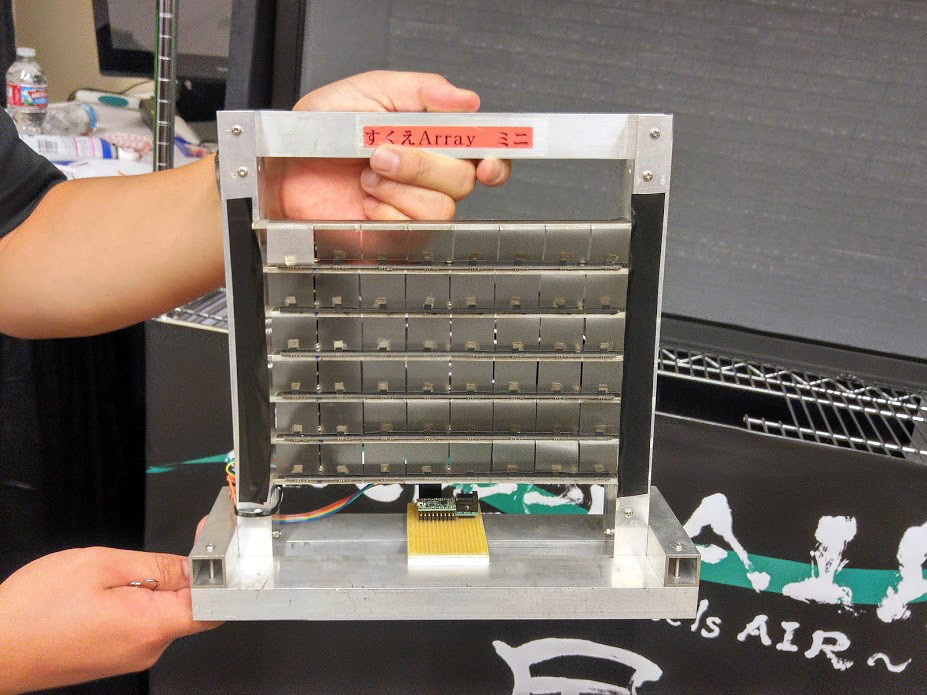
The Perforated screen has a whole array of sensors behind it. Each sensor is essentially a light strip of plastic with a magnet attached to it. When air hits the sensor, the plastic strip moves, and its movement is recorded by a wire tracking the magnet’s motion, similar to an electric guitar’s string and pickup interaction.
Siymb (UK)
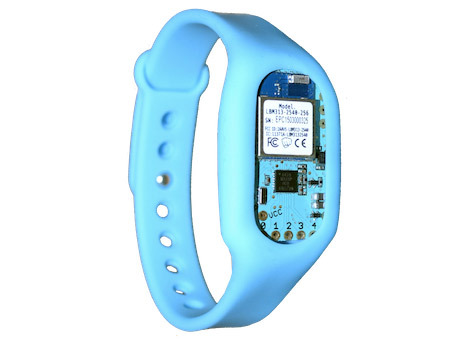
The Siymb team describes their project as something that will "shatter the fistbowls full of business card and burn their contents to ashes". It’s not a flamethrower.
Instead, it’s an inexpensive wearable, aimed to instantly exchange people’s contact information with a single handshake at conferences and exhibitions. We tried it our here in Seattle, and we saw our LinkedIn connection pop up on the Siymb app straight after exchanging a handshake.
Fist bumps are also possible, though that particular algorithm wasn’t available on the day.
EpSyDet (Romania)
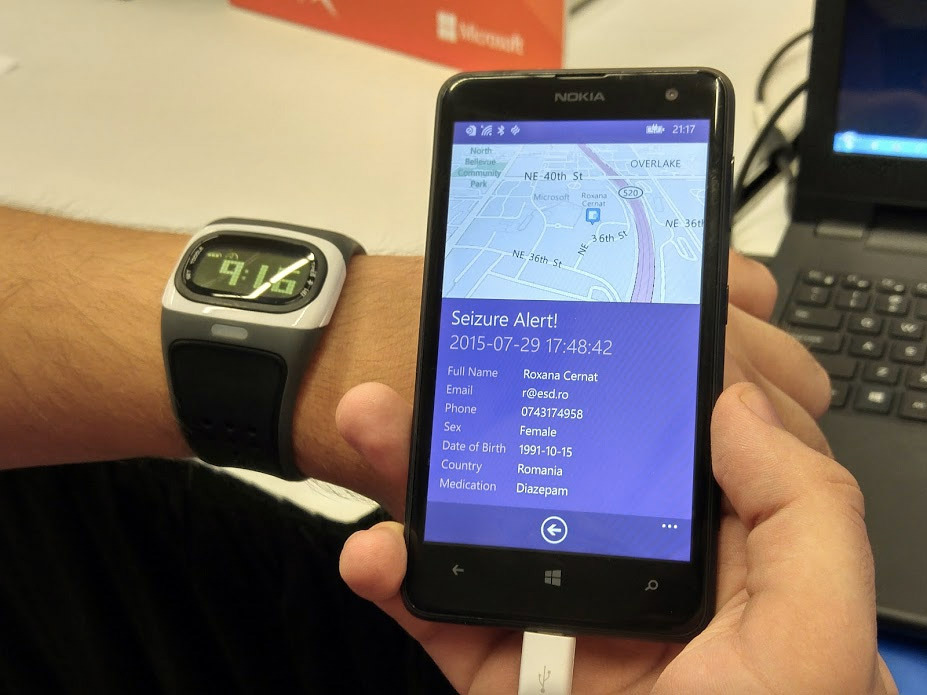
EpSyDet is an app which works with existing wearables to detect when an epilepsy sufferer is having a fit. The app then automatically contacts a guardian with the patient’s location.
It also raises an alarm on the patient’s phone, so that passers by can help to assist them. The app has been approved by medical professionals, and patients’ data is stored on Microsoft’s Azure cloud, so that doctors can track patient data and help tweak the algorithm even further.
Tether (New Zealand)
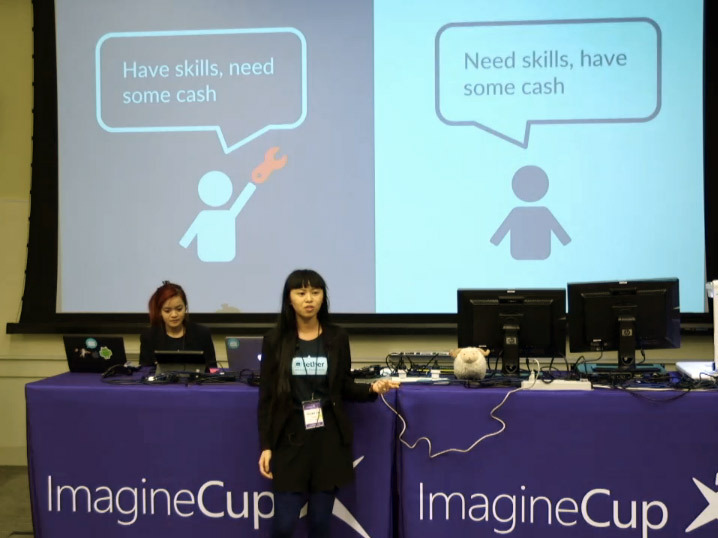
Tether is a service which searches your social network contacts to find people with skills that you need. Instead of paying a mechanic to fix your knackered car for example, you can use tether to see which one of your mates has the skills to sort you out and pay them (hopefully less) instead.
We’d still feel a little guilty about helping our mums with their computer woes mind, but only a little bit.
Virtual Dementia Experience (Australia)
This virtual reality experience designed for the Oculus Rift helps put you into the shoes of a dementia sufferer to help care workers, designers and architects understand the condition so that they can make patients’ lives more comfortable.
The team from down under walked away with a US$50,000 first-place cheque for beating the rest of the competition in the World Citizenship category.
Clothes For Me (Brazil)
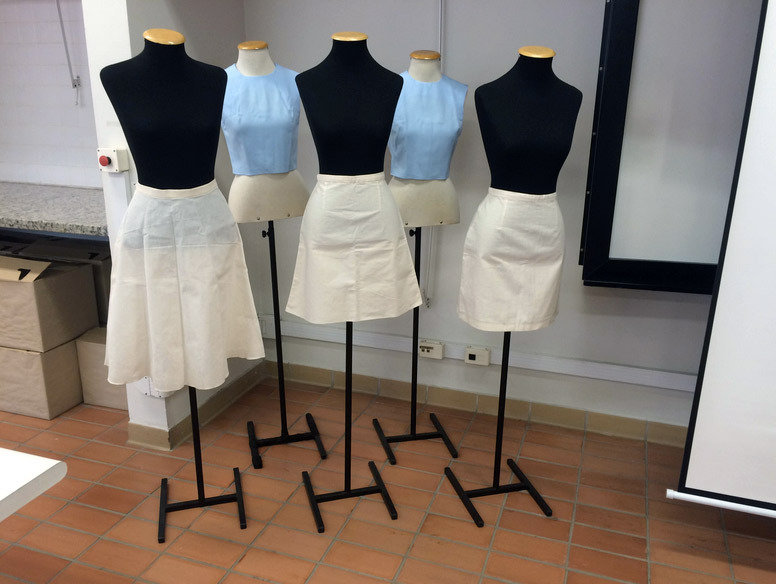
Big or small, thin or round – we’re all different, and off-the-rack clothes fit us badly more often than not. That’s the driving force behind the eFitFashion team’s project, which consists of a system which takes your own personal measurements before sending them off to tailors who create perfect-fitting, made-to-order clothes based on your personal preferences. Yellow pinstripe zoot suits, here we come.
The team went on to win the Innovation category and the overall prize, netting them a personal mentoring session with Satya Nadella himself.

